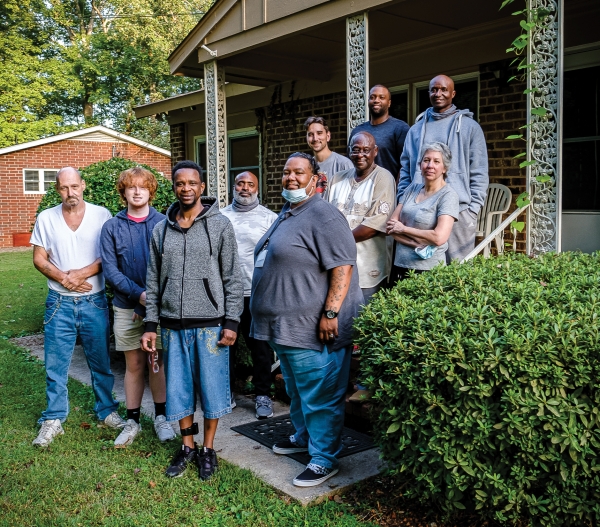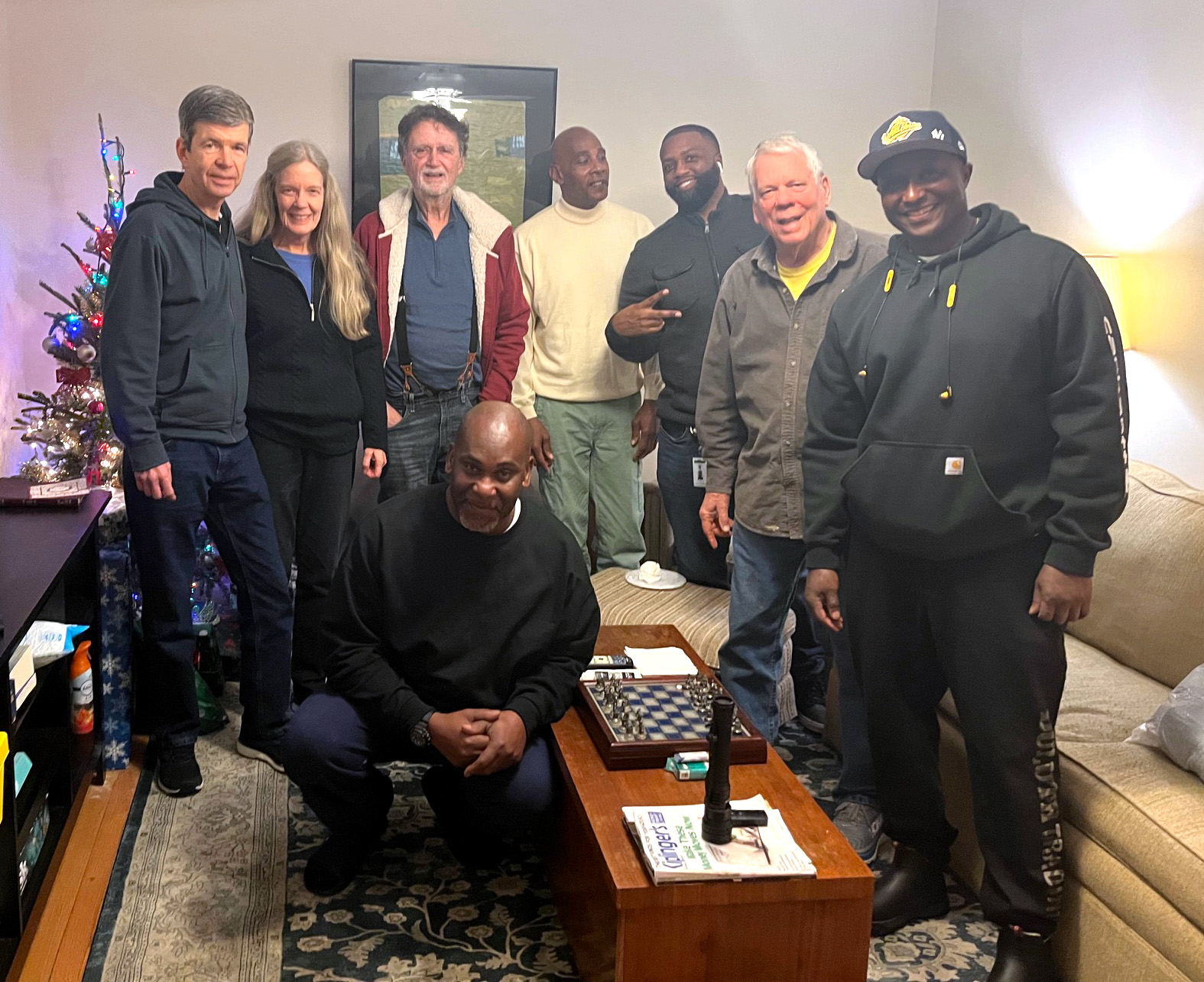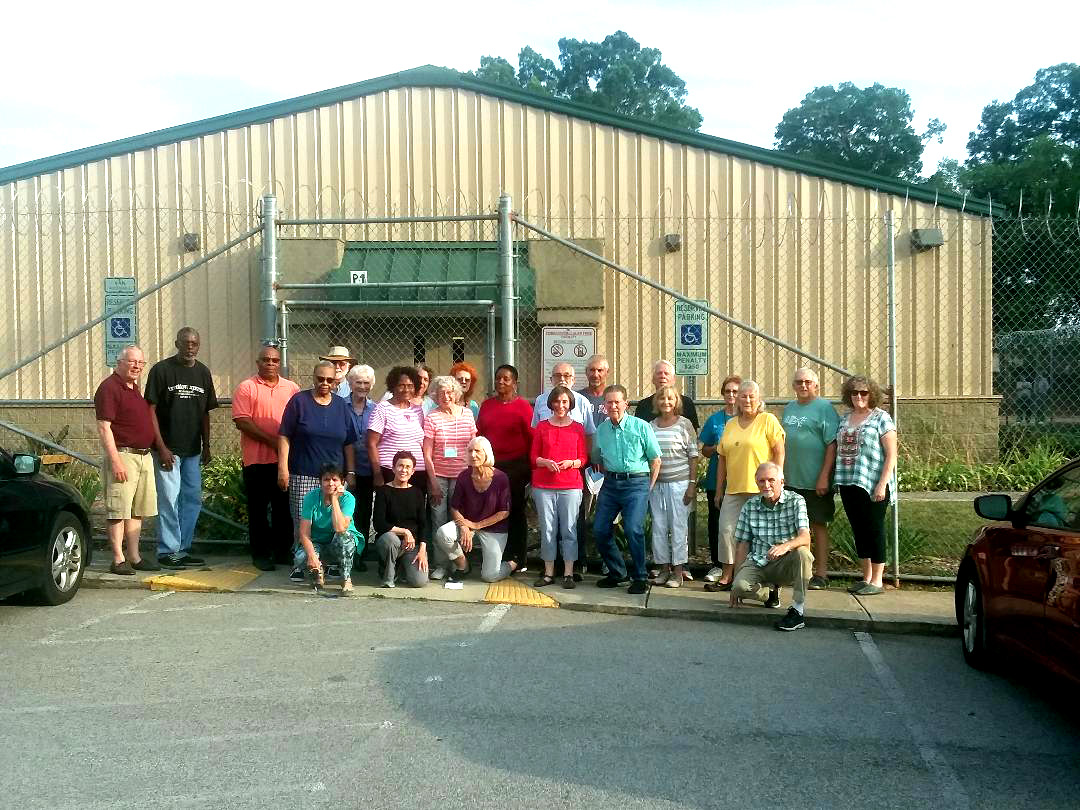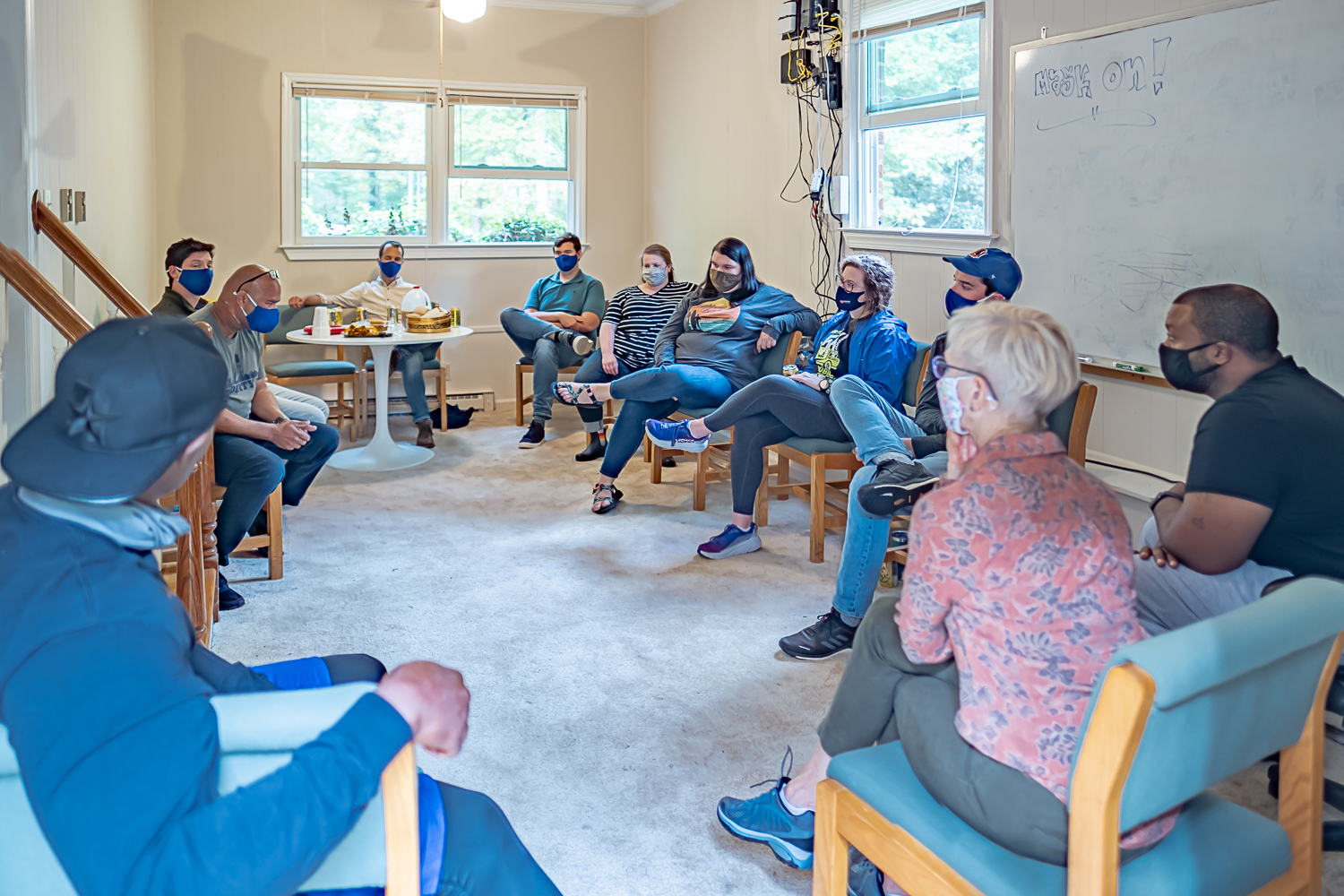Disciple: The Privilege of Prison Ministry

“I was in prison and you visited me.” (Matthew 25:11)
By the Rev. David Stanford
When the words “prison ministry” are used, it often evokes images of actually going into prisons and jails to tend to the physical and spiritual needs of those who reside there. Many avoid the ministry because of hesitation related to entering those spaces. Others avoid it having experienced reactions of fear and judgment about those inside, reactions that, unfortunately, are created by inaccurate stereotypes, news media hype and political jockeying for votes.
But the people in prison are people, just like you and me. They made mistakes, like we all do. And they are most often eager to account for those mistakes and turn their lives around, if only they have the chance to do so. Better nomenclature than “inmate” or “felon” is “justice-involved individuals, men and women.” And 90% of the people in prison will return to our communities. So what then?
[Image: Residents and board members pose in front of Reentry House in Hillsborough in September 2021. Photos throughout courtesy of the Rev. David Stanford]
Enter prison ministry. The reality is that prison ministry can take many forms, both within and outside of incarceration walls. The challenges of those in prison are not confined to the duration of the time they are serving, though there are many. The challenges extend far beyond that.
Think about how fast our society is moving, even over the last few years, whether in terms of technology, habits or simply navigating the everyday. Now imagine you have been absent during the societal evolution. Perhaps absent long enough that technology itself is foreign to you in that you’ve never held a smartphone, sent an email or surfed the internet. Consider what it would be like to enter our world without the skills or knowledge to use the tools that are required for just about every modern task.
That is what many coming out of the prison system face. The first hurdle before them may be financial, as many are required to repay court costs or reimburse child care payments incurred during their time away. The employment necessary to begin to repay these costs requires a bank account. To get a bank account requires a driver’s license. To obtain a driver’s license requires a birth certificate, and if they don’t have that document to hand, they must obtain it. To navigate the requirements of these needs can, and does, quickly become overwhelming. And all of this is to say nothing of the fact that even if all of these hurdles are overcome and gainful employment obtained, housing is often still denied as soon as the applicant is identified as a felon.
Taken together, these challenges create a multitude of opportunities for prison ministries in many forms. Those in the penal system need support, both within the prison walls and, in many cases, even more so when they are released. They need someone to sit with them, to walk with them, to teach, mentor and guide them. The importance of sharing these gifts with those who need them so much cannot be underscored.

[The December 2023 Christmas party at Reentry House for residents and board members.]
THE MISSION PRIORITY
If all the reasons above are not enough to convince one of the importance of prison ministry, its direct ties to our first diocesan mission priority of Racial Reckoning, Justice and Healing is yet another.
In her monumental study The New Jim Crow, author Michelle Alexander gives statistic after statistic about how the prison industrial complex serves in many ways like the earlier Jim Crow system in our country. All the reasons why this is true cannot fit in the space we have here. Suffice it to say, many of those in the system are minorities, and many of the prison systems are listed as for-profit corporations on the New York Stock Exchange. Prisons are big business in many areas.
After reams of information and statistics, the compelling statement Alexander makes, and the one that moved me and several members of the diocesan Bishop’s Committee on Prison Ministry to get started in this work, is that what can make a difference is individuals and institutions, like the church, getting involved. When we became involved, statistics became individuals. They became more than serial numbers. They became people with names and family members and neighbors in all our communities.
Since we began to get to know them as real people, they touch our lives with their stories, their resilience and their ability to overcome so many of the obstacles and adversities attached to the word “felon.” It is a great privilege to walk with them and allow them to teach us. We learn something through the wisdom and mercy of Matthew 25:11, “I was in prison and you visited me.”

[Volunteers with Yokefellow Prison Ministry pause on a Tuesday evening before entering the Orange Correctional Peace Center.]
ENGAGE WITH THE SYSTEM
One of the easiest entry points to prison ministry is to engage with organizations already involved with the work. Several diocesan congregations do just that, allowing them to serve in a number of ways. For those serving on the Bishop’s Committee for Prison Ministry, it’s the model they follow in answering their call.
The Rev. Jenny Clarke Brown works with the Arise Collective, formerly the Interfaith Prison Ministry for Women (IPMW), a nonprofit organization serving the greater Raleigh area with a mission to build bridges of hope for women in prison before and after release through chaplaincy services, transitional programs and reentry support. In addition to her work with the Arise Collective, Brown also serves as a chaplain at the women’s facility of Central Prison in Raleigh.
For the Rev. Mark Davidson and the Rev. Jamie Edwards of St. Clements, Clemmons, prison ministry means working with Forsyth Jail and Prison Ministries, an organization that has served incarcerated men and women in its namesake county for more than 40 years. The ministry operates programs at the Forsyth County Detention Center as well as the state-run Forsyth Correctional Center. Support for those in detention includes worship services, music, Christian education, and many opportunities for fellowship and mentoring. Assistance for those reentering society from prison is provided through the Transition to Work program, and support is given in both the pre-release and post-release settings. Davidson and Edwards regularly visit inmates at the Forsyth County Jail, and the congregation provides much-needed hygiene kits for the men residing there.
Mike Sistrom and Martin Fowler of St. Philip’s, Durham, organize phone visitations and the provision of Bibles to the inmates of the Durham County Jail. Vivian Rogers in Davidson regularly visits at the local juvenile justice facility. Chipper Long works throughout the Sandhills Convocation to help with finding housing through the Anson Homes of Hope program (Disciple, Winter 2021).
For me, prison ministry involves weekly visits at the Orange County Correctional Center through the Yokefellow Prison Ministry, an interdenominational, racially diverse Christian ministry of reconciliation begun in 1969 that includes lay and clergy volunteers. It serves both incarcerated men and women and is founded on the idea that people’s lives are changed through committed relationships. Yokefellow is not focused on worship, preaching, teaching, counseling or Bible study; instead it is a ministry of listening, sharing, caring, encouragement and support provided by community volunteers from the “outside” yoked in fellowship with those on the “inside” through the weekly small group meetings conducted by trained volunteers.
I also serve on the board of Reentry House Plus, a nonprofit organization dedicated to walking with the formerly incarcerated as they work to reintegrate into mainstream society. It provides housing and needed support resources to assist those in the program with rebuilding their lives.

[Students from Duke Divinity School visit Reentry House.]
YOUR INVITATION
If this work calls to you, if you want to be the difference in the life of a person who needs it more than you can know, we invite and encourage you to reach out to us. We’re all happy to share our stories and all the ways prison ministry can be approached, and we are glad to help you get started.
For all of us serving on the Bishop’s Committee on Prison Ministry, sharing time with justice-involved men and women provides a rich dimension to our spiritual lives. We know you will receive the same gift if you choose to answer the call.
GET STARTED
FORSYTH JAIL AND PRISON MINISTRIES
Diocesan contact: The Rev. Mark Davidson
YOKEFELLOW PRISON MINISTRY
Diocesan contact: The Rev. David Stanford
REENTRY HOUSE
Diocesan contact: The Rev. David Stanford
To find entry points in the area of reentry, look for the Local Reentry Council (LRC) in your county, or visit the Transitional Aftercare Network (TAN) at dac.nc.gov.
To pursue service within prisons and jails, special training is required. The Prison Rape Elimination Act (PREA) is required for anyone volunteering within prison walls. Learn more.
The Rev. David Stanford is the chair of the Bishop’s Committee on Prison Ministry.
Tags: North Carolina Disciple
